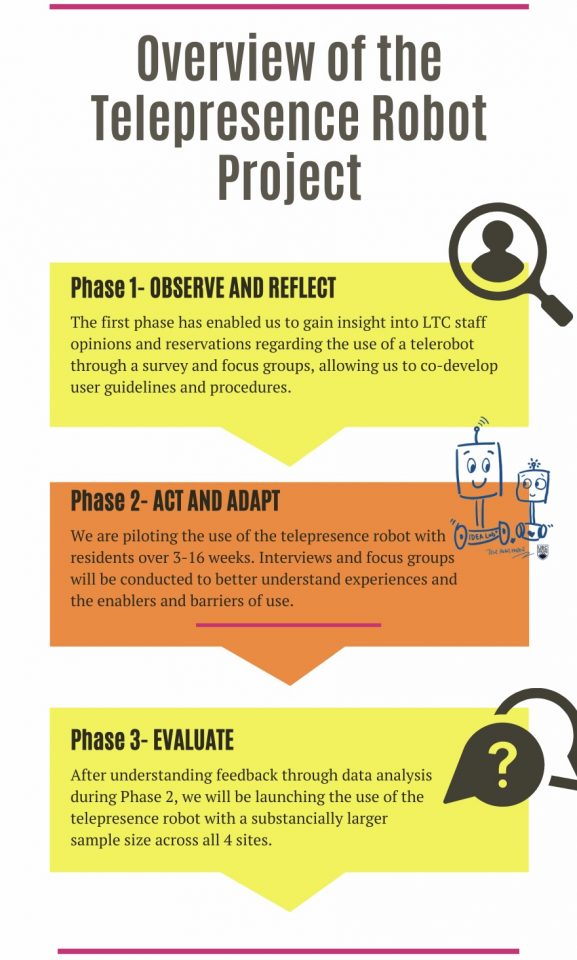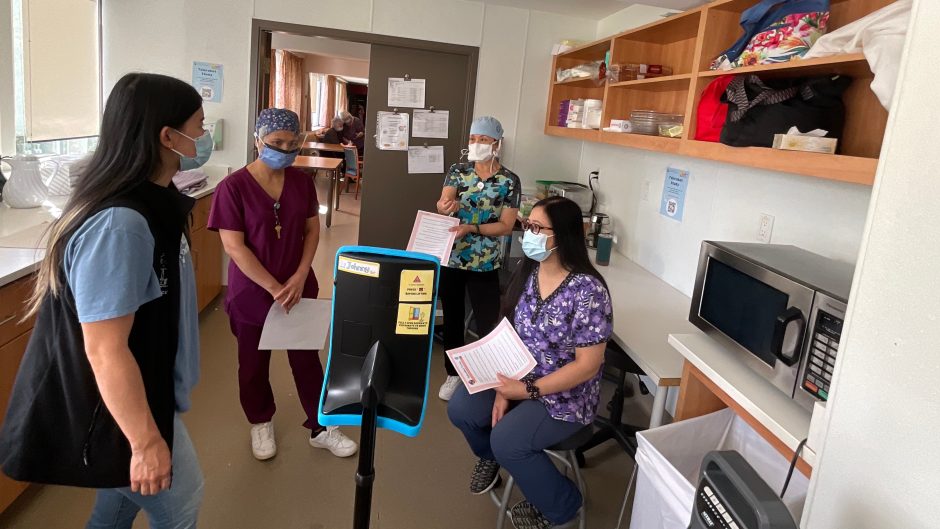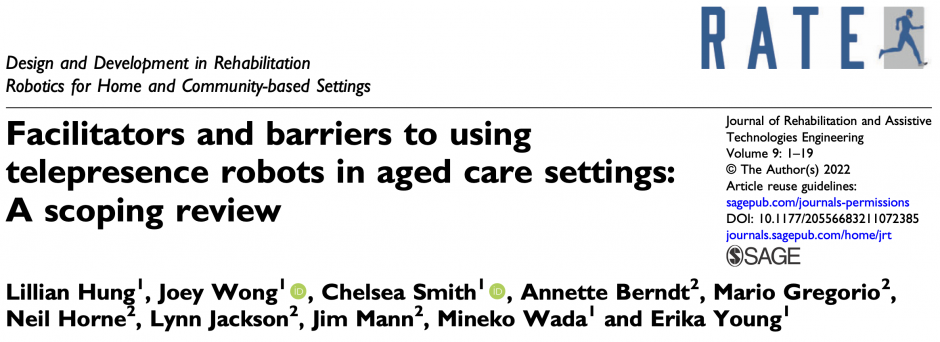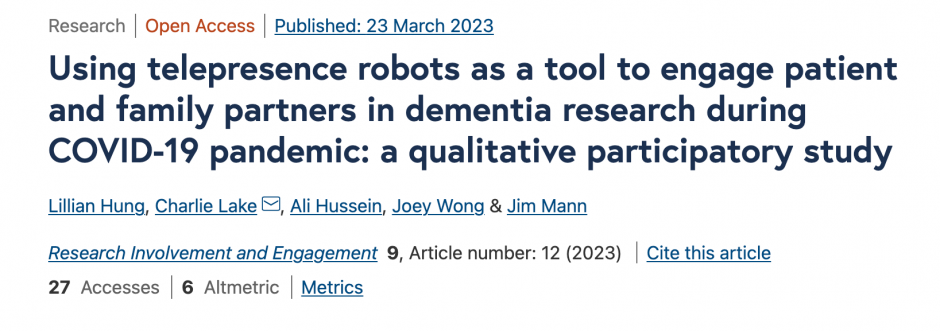
Telepresence Robot Project
Telepresence Robot
Social isolation is a significant issue in aged care settings. Long-term care (LTC) and hospitals are associated with adverse outcomes such as reduced well-being and loneliness in older adults. Loneliness has been shown to be linked to depression, cognitive decline, and mortality.
With the rates of social isolation having increased among the older adult population during the COVID-19 pandemic, our mitigation efforts are focusing on the use of robotics to help reduce loneliness, and social isolation, and improve quality of life.
The use of mobile telepresence robots helps to enable individuals in different locations to interact with each other from a distance, near or far. Our research results will offer practical guidelines for the safe implementation and ethical use of the robot in LTC homes.


Adoption of Artificial Intelligence–Enabled Robots in Long-Term Care Homes by Health Care Providers: Scoping Review
This review includes 33 articles that met the inclusion criteria. We identified three barriers to AI-enabled robot adoption:
- Perceived technical complexity and limitation
- Negative impact, doubted usefulness, and ethical concerns
Strategies to mitigate these barriers were also explored:
- Accommodate the various needs of residents and health care providers
- Increase the understanding of the benefits of using robots
- Review and overcome the safety issues
- Boost interest in the use of robots and provide training
To learn more, check out the full article
Telepresence Robot Project in the Media
AI-ROBOT: Strategies to Support Health Care Providers in Adopting AI-Enabled Robots in LTC
Publications
Conferences attended:
- Canadian Association on Gerontology (2021)
- 31st Alzheimer Europe Conference (2021)
- 17th Annual ACM/ IEEE International Conference on Human-Robot Interaction (2022)
- West Coast Conference on Aging (2022)

Engagement
Our team has participated in multiple information sessions and even reached out for help over social media! Knitters in the community came together and helped create telerobot ‘cozies’ to help reduce the brightness for staff and residents at our sites. To help spread the word we’ve also created mugs, reusable tote bags, multiple training materials including information packages and YouTube videos on introducing the robot and how it works. Our staff champions and research team members got involved in a Halloween Trick or Treat session
Video Gallery


We are a team of unique individuals who have shared values towards working together towards the improvement of dementia care. Our multi-disciplinary team includes students, researchers, frontline staff, leadership, community partners and field experts, families, and people with lived experience. The research team has been working closely with this Public Advisory Committee (PAC). The PAC provides input and influences decision-making for the whole research project. They are actively involved in joint planning and taking action to address challenges.
Accomplishments

Principal Investigator: Lillian Hung
Project co-Lead: Jim Mann
Current Team Members: Annette Berndt, Mario Gregorio, Lynn Jackson, Lily Wong, Lily Ren, Neil Horne, Mineko Wada, Krisztina Vasarhelyi, Joey Wong, Erika Young, Nazia Ahmed, Charlie Lake, Chelsea Smith, Evangeline Tsevis, Karen Wong, Ali Hussein, Grace Hu, Sophie Yang, Gloria Loi, John Chang, Cates Bayabay, and Jessica Kwan.




















